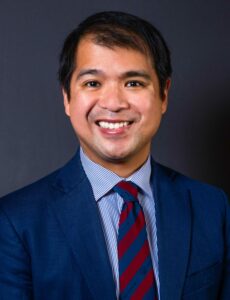
Today we’d like to introduce you to Marvin Lim.
Hi Marvin, can you start by introducing yourself? We’d love to learn more about how you got to where you are today?
I’m an immigrant from the Philippines that grew up on public assistance in Atlanta. I worked hard – and also benefitted from some luck – to attend institutions like Yale Law School and become a Fulbright Scholar. I’ve tried to channel all that into giving back – among other things, as a civil rights attorney and, currently, as a State Representative for a district where over half the people are immigrants and a quarter of people are at or below the poverty line.
Within that nutshell, I think, is a testament to the complexity of the so-called American Dream, including both its challenges and opportunities. Someone can look at the road I’ve taken and focus on the achievements of which I am proud. And I’m so grateful to have had opportunities that, in another time and country, I would have never gotten. But looking only at those things misses the many difficulties – events of unexpected unemployment, cancer, to mental health, to death – that took their toll along the way, many of which I fully believe we (and others who’ve experienced the same things) didn’t have to go through. And many people worked as hard as, or even harder than my family – and went through even more – and weren’t able to show what we did.
But I’d like to think that, in a time where so many people are bitterly divided politically – and so many others have just given up our institutions, period – this kind of nuanced perspective allows me to serve people of all stripes and beliefs, as a State Representative.
Alright, so let’s dig a little deeper into the story – has it been an easy path overall and if not, what were the challenges you’ve had to overcome?
Most people don’t have perfectly smooth roads, I don’t think. And, based on what I’ve already said, it shouldn’t surprise you that my experiences have definitely involved some struggles. But another way of answering this question is to focus on where I live, where this kind of experience isn’t unique.
To begin, my district – which I’ve already mentioned is incredibly diverse while also being quite under resourced – historically has the lowest turnout numbers of all districts in the Georgia General Assembly. And to me, that speaks to something I’ve seen over and over again here in people’s personal stories. It’s NOT that people aren’t “educated” about politics or somehow “lazy” or entitled. I’ve got some of the hardest working people in America – including many entrepreneurs and laborers in essential industries, like food or construction, that are far from glamorous. But, as the low turnout numbers show, many of these people don’t believe that the government ultimately serves their needs – specifically, they don’t believe it will be there for them when they actually DO need some help, like during COVID-19.
I can relate to that in many ways. For example, I myself, when I first was eligible to vote, was wrongly flagged as a non-citizen, potentially fraudulent voter – and that turned me off the government for quite a while. At the end of the day, these types of experiences represent a type of “struggle” that people – myself and my family included – personally soldier through, as I hope anyone would. That said, I certainly believe as a State Representative that we should do all we can to reduce or eliminate a whole host of issues that make things difficult and painful for the hardest working, most under resourced among us. We don’t just need to accept the inevitability of those struggles.
Can you tell our readers more about what you do and what you think sets you apart from others?
So, as a State Representative, many people think that our job consists largely of passing – or arguing against – laws. That’s a critical part of our job, of course. At the same time, here in Georgia, every year we’re in regular sessions only for about 40 total days, spread out from January to March or April. That leaves most of the year to serve our constituents, and our state, in other ways. For me, how I’ve chosen to do that – and ultimately what I’m most proud of – is finding very local ways to be there for my constituents, which, as I’ve already said, represents the diversity but also disenfranchisement of many people in Georgia.
During COVID-19 times, that’s meant things like personally assisting many people with unemployment benefits personally. Or constantly compiling, translating into Spanish and Vietnamese (the two most commonly spoken languages in my district besides English), and publicizing various resources and information that will be relevant to people.
But I think the best example has been my work to push law enforcement to become more culturally adept and language accessible. Before COVID-19, I worked with constituents to create resources like a “Talk to Your Neighbor” guide and “Crisis Intervention” phrases in various languages that I pushed our local law enforcement to implement. I did that knowing that public safety is a top concern in my area, but that, without trust among neighbors and with government, we will never make progress. After the March 16 spa killings, a tragedy that highlighted this very issue, I then had the opportunity to do this not only at the state but also the federal level, when I had the chance to advocate President Biden and Vice President Harris for all law enforcement nationwide to take similar steps.
A few days after that, President Biden wrote me a letter, which stated: “Your local efforts to enhance the ability of law enforcement to communicate in various languages are an inspiration, and should serve as a model for the Nation.”
How do you think about luck?
I’ll repeat that luck – both good and bad – has definitely played a huge role in my life and my work. Something I’ve pondered often is what my life would have been like had my parents not had (or taken) the opportunity to come to the United States. Working hard is necessary except for the luckiest of us – but it’s not sufficient. For every bootstrap narrative come to life, I can point to folks in every walk of life – from small family farmers in rural America to, like myself, immigrants in urban areas – who absolutely worked hard and remained honest but were ultimately wiped out by circumstances beyond their control. Or whose quality of life simply didn’t rise to a level that their combination of talent and labor would have predicted, compared to others who didn’t put in the effort but ultimately got a larger share of the pie. That’s why it’s important to me to ensure that, when we’re talking about things like equal opportunity or equity, we take a truly holistic approach to it.
All that said, I also fully believe the infinite gift that is in everyone’s life and work, no matter what they ultimately “achieve.” That’s why it’s important to me, particularly as a State Representative, to work towards ensuring that every human can have at least the basic goods they need to live a decent life. And that’s also why I try to encourage everyone – and that includes myself, particularly when times are difficult – to keep going. Because – whatever good or bad luck comes our way – the labor we put into our lives, for ourselves and for others, has a dignity that no one will ever be able to take away.
Contact Info:
- Email: marvin.lim@house.ga.gov
- Website: www.marvinlimforga.com
- Instagram: https://instagram.com/marvinlimforga
- Facebook: https://www.facebook.com/MarvinLimforGA
- Twitter: https://twitter.com/marvinlimforga




















